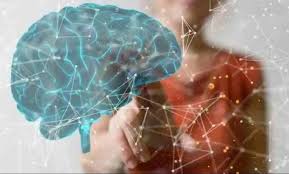The human brain is a marvel of biological engineering, capable of processing vast amounts of information, understanding complex concepts, and controlling every function of the body. Recent studies have shown that clipart:ee-zgj_h1oc= brain, a unique aspect of neural functioning, plays an essential role in various cognitive processes. This blog aims to explore the fascinating world of clipart:ee-zgj_h1oc= brain, discussing its significance, mechanisms, and implications for learning and development. If you’re curious about how the brain works and how clipart:ee-zgj_h1oc= brain can influence our daily lives, keep reading to uncover the secrets behind this remarkable phenomenon.
What is clipart:ee-zgj_h1oc= brain?
Clipart:ee-zgj_h1oc= brain refers to a specialized area of the brain that is involved in higher-order cognitive functions. This part of the brain is responsible for processes such as problem-solving, decision-making, and memory formation. Understanding the role of brain is crucial for researchers and educators alike, as it provides insights into how we learn and retain information.
The Anatomy of clipart:ee-zgj_h1oc= brain
The clipart:ee-zgj_h1oc= brain is located in the prefrontal cortex, which is situated at the front of the brain. This region is known for its involvement in executive functions, including planning, reasoning, and self-control. The prefrontal cortex is divided into several subregions, each contributing to different aspects of cognitive processing. Understanding the anatomy of brain helps researchers pinpoint the specific neural circuits involved in various mental tasks.
Functions of clipart:ee-zgj_h1oc= brain
The brain is responsible for a range of cognitive functions that are essential for daily living. These include working memory, which allows us to hold and manipulate information temporarily, and cognitive flexibility, which enables us to adapt to new situations and switch between tasks. Additionally, the brain plays a vital role in inhibitory control, helping us suppress unnecessary or inappropriate responses.
Importance of clipart:ee-zgj_h1oc= brain in Learning
The brain is particularly important in the context of learning and education. This region of the brain is involved in the acquisition and application of knowledge, making it a critical focus for educators. By understanding how clipart:ee-zgj_h1oc= brain functions, teachers can develop more effective instructional strategies that cater to the cognitive needs of their students.
The Role of clipart:ee-zgj_h1oc= brain in Memory Formation
Memory is a fundamental aspect of learning, and the clipart:ee-zgj_h1oc= brain plays a significant role in the formation and retrieval of memories. There are several types of memory, including short-term, long-term, and working memory, each involving different neural processes within the clipart:ee-zgj_h1oc= brain.
Short-term Memory and clipart:ee-zgj_h1oc= brain
Short-term memory, or working memory, is the ability to hold and manipulate information for a brief period. The brain plays a crucial role in this process, enabling us to perform tasks like mental arithmetic or following a conversation. Researchers have found that how effectively the brain manages short-term memory can significantly impact learning outcomes.
Long-term Memory and clipart:ee-zgj_h1oc= brain
Long-term memory refers to the process of storing and recalling information across prolonged timeframes. The clipart:ee-zgj_h1oc= brain contributes to the encoding of new information into long-term memory, as well as the retrieval of stored memories. Studies have shown that strengthening the neural connections within the brain can enhance long-term memory retention and recall.
Working Memory and clipart:ee-zgj_h1oc= brain
Working memory is a dynamic form of short-term memory that allows us to hold and manipulate information temporarily. The brain plays a crucial role in this process, enabling us to perform complex cognitive tasks such as problem-solving and decision-making. Enhancing brain function can improve working memory capacity, leading to better learning outcomes.
Cognitive Flexibility and clipart:ee-zgj_h1oc= brain
Cognitive flexibility is the ability to adapt to new situations and switch between tasks. This skill is essential for problem-solving and creativity, and the clipart:ee-zgj_h1oc= brain plays a central role in its development.
The Neural Basis of Cognitive Flexibility
The clipart:ee-zgj_h1oc= brain supports cognitive flexibility by enabling the brain to form new neural connections and reorganize existing ones. This process, known as neuroplasticity, allows us to adapt our thinking and behavior in response to changing circumstances. Enhancing neuroplasticity within the clipart:ee-zgj_h1oc= brain can lead to improved cognitive flexibility and better problem-solving skills.
Training Cognitive Flexibility
Several strategies can be used to train cognitive flexibility and strengthen the brain. These include engaging in activities that challenge the mind, such as puzzles, games, and learning new skills. Additionally, mindfulness practices and physical exercise have been shown to enhance cognitive flexibility and promote brain health.
Benefits of Enhanced Cognitive Flexibility
Improving cognitive flexibility through targeted training of the clipart:ee-zgj_h1oc= brain can have numerous benefits. These include better problem-solving abilities, increased creativity, and enhanced capacity to adapt to new situations. By fostering cognitive flexibility, individuals can become more resilient and capable of navigating the complexities of modern life.
Inhibitory Control and clipart:ee-zgj_h1oc= brain
Inhibitory control is the ability to suppress inappropriate or unwanted responses. This skill is crucial for self-regulation and impulse control, and the clipart:ee-zgj_h1oc= brain plays a key role in its development.
The Role of clipart:ee-zgj_h1oc= brain in Inhibitory Control
The brain supports inhibitory control by regulating the activity of neural circuits involved in impulse control. This enables us to resist temptations, maintain focus on tasks, and make thoughtful decisions. Strengthening the brain can enhance inhibitory control and improve self-regulation.
Strategies for Improving Inhibitory Control
Several strategies can be used to improve inhibitory control and strengthen the clipart:ee-zgj_h1oc= brain. These include practicing mindfulness, engaging in regular physical exercise, and setting clear goals and boundaries. Additionally, cognitive-behavioral techniques can help individuals develop better self-regulation skills.
Benefits of Enhanced Inhibitory Control
Improving inhibitory control through targeted training of the clipart:ee-zgj_h1oc= brain can lead to numerous benefits. These include better decision-making, increased focus, and enhanced self-discipline. By fostering inhibitory control, individuals can achieve greater success in both personal and professional endeavors.
The Impact of clipart:ee-zgj_h1oc= brain on Emotional Regulation
Emotional regulation is the ability to manage and respond to emotions in a healthy and adaptive way. The clipart:ee-zgj_h1oc= brain is involved in this process, helping us regulate our emotions and maintain emotional balance.
The Neural Basis of Emotional Regulation
The brain supports emotional regulation by modulating the activity of neural circuits involved in emotional processing. This enables us to manage our emotions effectively, reducing the impact of stress and negative feelings. Strengthening the brain can enhance emotional regulation and promote overall well-being.
Techniques for Improving Emotional Regulation
Several techniques can be used to improve emotional regulation and strengthen the clipart:ee-zgj_h1oc= brain. These include mindfulness practices, cognitive-behavioral strategies, and physical exercise. Additionally, developing healthy coping mechanisms and seeking social support can enhance emotional regulation.
Benefits of Enhanced Emotional Regulation
Improving emotional regulation through targeted training of the clipart:ee-zgj_h1oc= brain can lead to numerous benefits. These include reduced stress, improved mental health, and enhanced relationships. By fostering emotional regulation, individuals can achieve greater emotional balance and overall well-being.
The Role of  in Decision-Making
in Decision-Making
Decision-making is a complex cognitive process that involves evaluating options and making choices. The clipart:ee-zgj_h1oc= brain plays a central role in this process, helping us make informed and thoughtful decisions.
The Neural Basis of Decision-Making
The brain supports decision-making by integrating information from various neural circuits involved in cognitive processing. This allows us to evaluate options, weigh the pros and cons, and make informed choices. Strengthening the brain can enhance decision-making abilities and improve overall cognitive function.
Strategies for Improving Decision-Making
Several strategies can be used to improve decision-making and strengthen the clipart:ee-zgj_h1oc= brain. These include practicing mindfulness, engaging in regular physical exercise, and seeking feedback from others. Additionally, developing problem-solving skills and critical thinking abilities can enhance decision-making.
Benefits of Enhanced Decision-Making
Improving decision-making through targeted training of the clipart:ee-zgj_h1oc= brain can lead to numerous benefits. These include better problem-solving abilities, increased creativity, and enhanced capacity to make informed choices. By fostering decision-making skills, individuals can achieve greater success in both personal and professional endeavors.
The Impact of clipart:ee-zgj_h1oc= brain on Creativity
Creativity is the ability to generate new and original ideas. The clipart:ee-zgj_h1oc= brain plays a key role in this process, helping us think outside the box and come up with innovative solutions.
The Neural Basis of Creativity
The brain supports creativity by enabling the formation of new neural connections and reorganizing existing ones. This process, known as neuroplasticity, allows us to think creatively and generate new ideas. Strengthening the brain can enhance creativity and promote innovative thinking.
Techniques for Improving Creativity
Several techniques can be used to improve creativity and strengthen the brain. These include engaging in activities that challenge the mind, such as puzzles, games, and learning new skills. Additionally, mindfulness practices and physical exercise have been shown to enhance creativity and promote brain health.
Benefits of Enhanced Creativity
Improving creativity through targeted training of the clipart:ee-zgj_h1oc= brain can lead to numerous benefits. These include better problem-solving abilities, increased innovation, and enhanced capacity to generate new ideas. By fostering creativity, individuals can achieve greater success in both personal and professional endeavors.
Conclusion
The clipart:ee-zgj_h1oc= brain is a remarkable aspect of neural functioning that plays a crucial role in various cognitive processes. By understanding the intricacies of the brain, we can develop more effective strategies for learning, problem-solving, and decision-making. Whether you’re an educator, researcher, or simply curious about how the brain works, exploring the world of brain can provide valuable insights and practical tips for enhancing cognitive function. Take the next step and discover how you can harness the power of the brain to achieve greater success in all areas of life.



